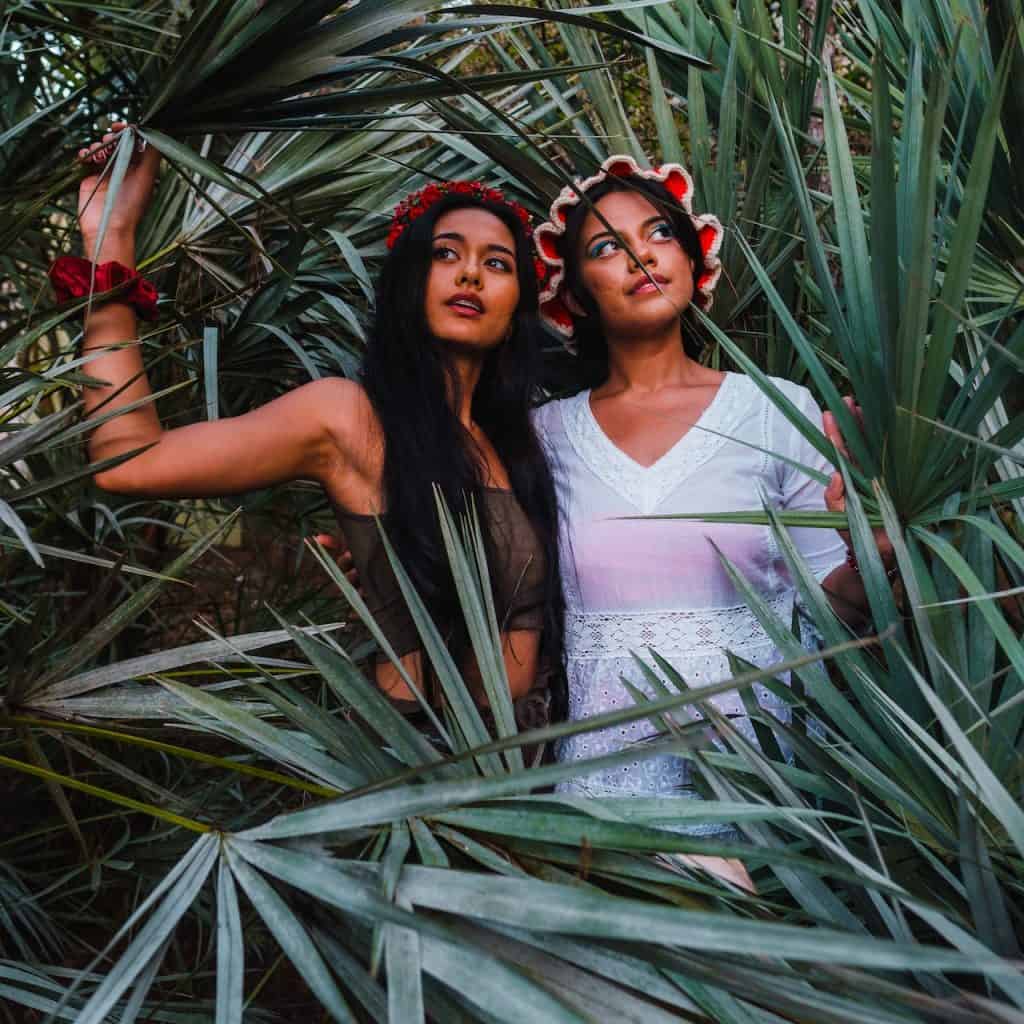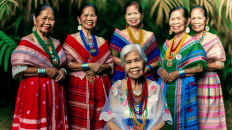- Introduction
- Brief overview of the Philippines and its cultural diversity
- Importance of women in Filipino society
- Historical Significance of Filipino Women
- Pre-colonial Philippines and the role of women
- Spanish colonization and its impact on women’s rights
- Women during the American colonization and World War II
- Cultural Aspects
- Traditional roles and expectations
- The concept of “Maria Clara” and its evolution
- Modern-day perceptions and changes
- Economic Contributions
- Filipino women in the workforce
- Overseas Filipino Workers (OFWs) and their sacrifices
- Women entrepreneurs in the Philippines
- Social and Political Activism
- Participation in revolutions and uprisings
- Women in politics and leadership roles
- Advocacy for women’s rights and gender equality
- Arts and Entertainment
- Prominent Filipino women in arts, literature, and entertainment
- Influence of Filipino women in global entertainment
- Challenges Faced by Filipino Women
- Socio-economic challenges
- Issues of gender-based violence and discrimination
- Balancing traditional expectations with modern aspirations
- Conclusion
- The enduring spirit of Filipino women
- Their continued journey towards empowerment and equality

1. Introduction:
The Philippines, an archipelago nestled in the heart of Southeast Asia, is a land of contrasts. From its bustling urban centers like Manila and Cebu to the serene landscapes of Palawan and the cultural hubs of Vigan and Cagayan de Oro, it offers a mosaic of experiences. But beyond its physical beauty and cultural richness, the Philippines is a nation defined by its people. And at the core of its societal and cultural fabric are the Filipino women.
Filipino women have always been pillars of strength, resilience, and grace. Their roles have evolved over the centuries, but their significance in shaping the nation’s identity has remained constant. From the ancient times of the Babaylanes, female spiritual leaders who held positions of power and respect, to the modern-day leaders in business, politics, arts, and sciences, Filipino women have been instrumental in forging the nation’s path.
Their stories are as diverse as the 7,641 islands of the archipelago. Some tales are of triumph against adversity, while others speak of sacrifices for the love of family and country. There are narratives of women who have risen to the highest echelons of their professions and stories of everyday heroines who make a difference in their communities.
But what truly sets Filipino women apart is their indomitable spirit. Whether facing personal challenges, societal pressures, or even national crises, they have consistently shown an ability to rise above circumstances, drawing from a deep well of inner strength and community support.
As we delve into the multifaceted world of Filipino women, it’s essential to approach the topic with an open heart and mind. For in understanding their journey, we gain insights not just into the soul of the Philippines, but also into the universal themes of resilience, love, and determination that resonate with us all.

2. Historical Significance of Filipino Women:
- Pre-colonial Philippines and the role of women: Before the waves of foreign influence, the archipelago that would become the Philippines was a tapestry of diverse tribes and kingdoms. In many of these societies, women held esteemed roles. The “Babaylan” is a testament to this. These were women who served as spiritual leaders, healers, and seers. Their roles were not just limited to spiritual matters; they were integral in societal decisions, rituals, and even in resolving conflicts. The Babaylanes held a balance of power, often acting as checks against the datu (tribal chief). Their influence was so profound that they were both revered and feared for their spiritual prowess.
- Spanish colonization and its impact on women’s rights: The arrival of the Spanish in the 16th century brought with it a wave of changes. The matriarchal societies and the esteemed roles of women began to erode under the patriarchal and religious fervor of the colonizers. The Babaylanes, once revered, were now seen as threats to the Spanish religious mission, leading to their persecution. However, in the face of these adversities, Filipino women adapted. They became the stewards of culture, tradition, and faith in their homes. While public roles diminished, their influence within the family unit grew. Women like Gabriela Silang, who led revolts against the Spanish, showed that the Filipino woman’s spirit remained unbroken.
- Women during the American colonization and World War II: The American regime brought about new educational systems and democratic ideals. Filipino women began to reclaim public spaces. They became educators, and nurses, and even started participating in politics. The era also saw the rise of women’s organizations advocating for rights and suffrage. World War II, however, brought new challenges. The war saw Filipino women stepping up in various capacities. While some served as nurses and caregivers, others took to the mountains as guerrilla fighters, resisting the Japanese occupation. Their bravery during these trying times was emblematic of their resilience.

3. Cultural Aspects:
- Traditional roles and expectations: In the heart of Filipino culture lies the family unit, and women have traditionally been its bedrock. Historically, they were expected to be the primary caregivers, responsible for nurturing children, managing households, and ensuring the well-being of family members. This role was often romanticized in literature and folklore, with women being portrayed as selfless, nurturing figures who put family above all else. The “Ilaw ng Tahanan” (Light of the Home) is a term often used to describe Filipino women, emphasizing their role in guiding and illuminating the family.
- The concept of “Maria Clara” and its evolution: Maria Clara, a character from Jose Rizal’s novel “Noli Me Tangere,” became an archetype of the ideal Filipino woman during the Spanish colonial period. She was depicted as demure, modest, and reserved – qualities that were highly valued at the time. For many years, the “Maria Clara” image influenced societal expectations of women, emphasizing virtues like chastity, grace, and passivity. However, as the Philippines underwent societal and cultural shifts, this image began to evolve. While some still uphold the traditional “Maria Clara” values, many Filipino women have challenged and redefined these norms, embracing a broader spectrum of identities and roles.
- Modern-day perceptions and changes: Today’s Filipino women are a blend of tradition and modernity. While many still value and uphold traditional roles, an increasing number are breaking barriers in fields previously dominated by men. Women are now leaders, innovators, and changemakers in various sectors, from business and politics to arts and sciences. The rise of women’s advocacy groups and feminist movements has also played a crucial role in challenging societal norms and pushing for greater gender equality. The modern Filipino woman is multifaceted – she can be a CEO, an artist, a homemaker, an activist, or all of these combined, and her identity is shaped by a rich tapestry of cultural influences and personal experiences.

4. Economic Contributions:
- Filipino women in the workforce: Over the decades, Filipino women have made significant strides in the professional world. Historically limited to roles in education, nursing, or clerical jobs, today’s Filipino women are breaking glass ceilings across diverse sectors. From tech startups in Manila’s bustling business districts to agricultural initiatives in the provinces, women are showcasing their prowess. They’re not just employees but also leaders, managers, and decision-makers. The Philippines boasts a higher percentage of women in senior management roles compared to the global average, a testament to their capabilities and evolving societal perceptions.
- Overseas Filipino Workers (OFWs) and their sacrifices: The phenomenon of OFWs has been a significant economic pillar for the Philippines. Among these OFWs, a substantial number are women. Venturing into foreign lands, these brave women often take up roles as domestic helpers, caregivers, nurses, and more. Their remittances back home have played a crucial role in the Philippine economy. But beyond the economic contributions lie stories of immense personal sacrifice. Many of these women leave behind families, children, and loved ones, often facing challenging work conditions abroad. Their resilience and commitment to providing for their families back home are both commendable and heart-wrenching.
- Women entrepreneurs in the Philippines: Entrepreneurship in the Philippines has a feminine face. From local markets where women sell handmade goods and fresh produce to the corporate world where they helm successful enterprises, Filipino women are making their entrepreneurial mark. They’re harnessing local resources, tapping into traditional crafts, and innovating in various fields. Organizations and initiatives that support women entrepreneurs have also been on the rise, further bolstering their ventures. These businesses not only contribute to the economy but also lead to community development, job creation, and the preservation of local cultures and crafts.
5. Social and Political Activism:
- Participation in revolutions and uprisings: Throughout Philippine history, women have not been mere spectators; they’ve been active participants in shaping the nation’s destiny. From the revolt against Spanish colonization to the struggle against the Marcos dictatorship, women have been at the forefront. Gabriela Silang, for instance, is a revered figure who led an uprising against Spanish rule in the 18th century. During the Martial Law era under Ferdinand Marcos, women were integral members of the resistance, organizing protests, disseminating information, and even taking up arms when necessary.
- Women in politics and leadership roles: The political arena in the Philippines has seen a steady rise in female participation. While challenges persist, Filipino women have made notable strides. The country has had two female presidents, Corazon Aquino and Gloria Macapagal-Arroyo, both of whom played pivotal roles in their respective eras. Beyond the national stage, women are also active in local politics, serving as mayors, councilors, and community leaders. Their leadership often brings a different perspective, emphasizing community welfare, education, and health.
- Advocacy for women’s rights and gender equality: The fight for women’s rights and gender equality in the Philippines has been a long and ongoing journey. Organizations like GABRIELA, a women’s rights advocacy group, have been instrumental in this battle. They champion various causes, from addressing domestic violence and workplace discrimination to pushing for legislative changes that protect and empower women. The annual “One Billion Rising” event, a global campaign to end rape and sexual violence against women, sees significant participation in the Philippines, highlighting the collective resolve of Filipino women to fight for their rights.
6. Arts and Entertainment:
- Prominent Filipino women in arts, literature, and entertainment: The Philippines has a rich artistic heritage, and women have been at its forefront. In literature, authors like Lualhati Bautista and Jessica Hagedorn have penned seminal works that explore the intricacies of Filipino identity, womanhood, and societal challenges. In the visual arts, artists like Anita Magsaysay-Ho and Pacita Abad have been celebrated for their unique styles and contributions to modern Filipino art. The world of dance has seen the likes of Lisa Macuja-Elizalde, the country’s prima ballerina, captivating audiences both locally and internationally.
- Influence of Filipino women in global entertainment: Filipino talent isn’t just confined to the archipelago. Many Filipino women have made waves on international stages. Lea Salonga, for instance, has been a beacon in the world of theater, being the first Asian woman to win a Tony Award. She’s renowned for her roles in musicals like “Miss Saigon” and “Les Misérables.” In the music industry, artists like KZ Tandingan and Morissette Amon have showcased Filipino talent on international platforms. The film industry has also seen Filipino women, like director Isabel Sandoval, gaining recognition in international film festivals.
- Championing Filipino narratives: Beyond their individual successes, what’s notable about many of these women is their commitment to championing Filipino narratives. Their works often delve into themes that resonate with the Filipino experience – whether it’s the complexities of diaspora, the struggles of everyday life in the Philippines, or tales of love, resilience, and hope that many Filipinos can relate to. Through their art, they provide a voice to stories that might otherwise go unheard, bridging cultures and fostering understanding.
7. Challenges Faced by Filipino Women :
- Socio-economic challenges: Despite the Philippines’ economic growth in recent years, many Filipino women still grapple with socio-economic challenges. Poverty remains a significant concern, especially in rural areas. Limited access to quality education and healthcare further exacerbates these challenges. Women, especially those from marginalized communities, often bear the brunt of these socioeconomic disparities, facing limited opportunities and resources to improve their circumstances.
- Issues of gender-based violence and discrimination: Gender-based violence remains a pressing issue in the Philippines. Domestic violence, sexual harassment, and human trafficking are among the challenges many women face. Cultural norms and stigmas often deter victims from reporting such incidents or seeking help. Additionally, discrimination in workplaces and public spaces, though less overt, persists. The fight for LGBTQ+ rights, particularly for transgender women, also highlights the broader struggles for gender equality and acceptance in the country.
- Balancing traditional expectations with modern aspirations: As Filipino society evolves, there’s a tension between traditional expectations and modern aspirations. Many women feel the pressure to fulfill traditional roles as primary caregivers and homemakers while simultaneously pursuing professional and personal goals. This balancing act can lead to challenges related to mental health, work-life balance, and societal acceptance.
- Representation and voice: While Filipino women have made strides in various sectors, representation at the highest levels remains a challenge. In politics, business, and other fields, women are often underrepresented, limiting their influence and decision-making power. The media, too, sometimes perpetuates stereotypes, affecting public perception and self-worth.
- Climate change and environmental challenges: The Philippines, being an archipelago, is particularly vulnerable to the impacts of climate change. Natural disasters like typhoons, floods, and droughts disproportionately affect women, especially those in rural areas. They face challenges related to displacement, food security, and increased vulnerabilities during such crises.
Filipino women, with their myriad roles and experiences, stand as a testament to the resilience, strength, and spirit of the Philippines. Their journey, woven through the tapestry of history, culture, and modernity, reflects both the challenges and triumphs of a nation in constant evolution.
From the spiritual leaders of pre-colonial times to the trailblazers of today, the legacy of Filipino women is rich and enduring. They have navigated societal norms, faced adversities head-on, and carved out spaces for themselves in every sphere of life. Their stories are not just tales of individual achievements but are emblematic of a collective spirit that pushes boundaries and seeks positive change.
Yet, the journey is far from over. The challenges faced by Filipino women today underscore the need for continued advocacy, empowerment, and support. As the world moves forward, it is imperative to ensure that the voices of Filipino women are heard, their rights upheld, and their contributions recognized.
In understanding and celebrating Filipino women, we gain insights into a nation’s soul. Their stories of love, sacrifice, resilience, and hope resonate universally, reminding us of the indomitable spirit of humanity. As the Philippines looks to the future, the role of its women will undoubtedly be central, guiding the nation towards greater heights and brighter horizons.


















Add comment